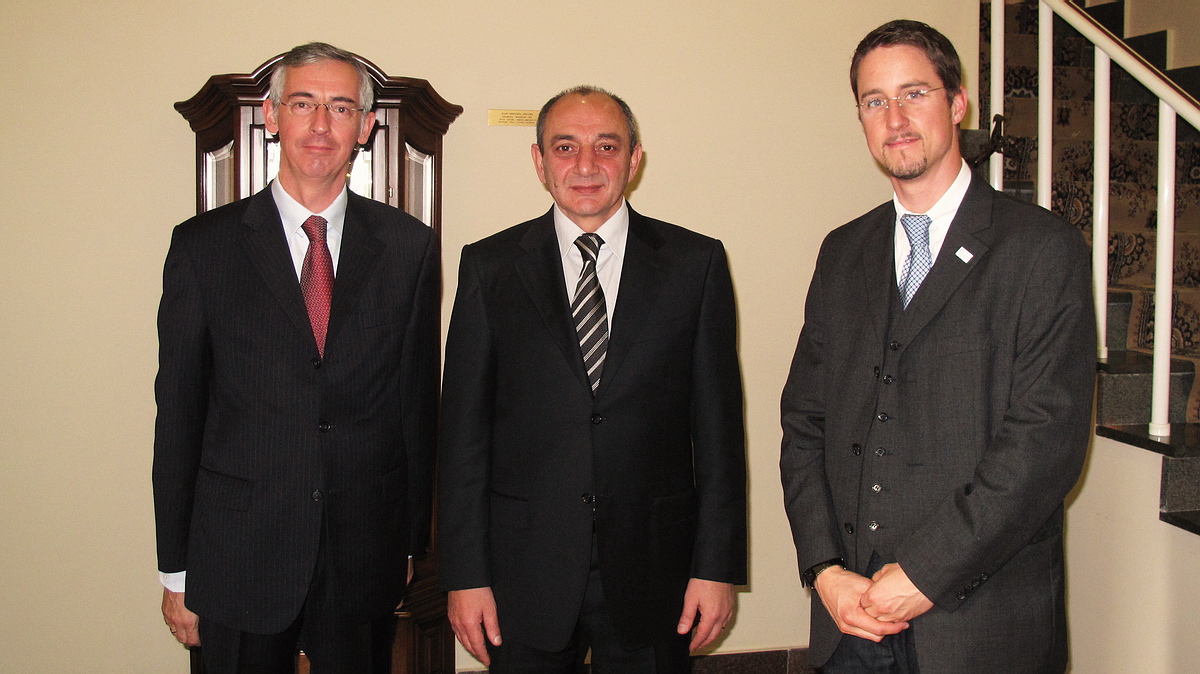Prof Coulie remarks Armenian root of Nagorno-Karabakh in euronews interview

This week, euronews is broadcasting a report on Nagorno-Karabakh including an interview with Professor Bernard Coulie, honorary rector of the Catholic University of Leuven and member of the Europe-Armenia Advisory Council.
“What is really fascinating about Nagorno-Karabakh is that it’s a region which gathers the very traits of the Armenian culture. We are in a region of real Armenian culture, with a Christian background, which is very important. We are in the heart of Armenia, even if not in a political sense – but this is also what is very fascinating”, Coulie commented being interviewed in front of one of the many Armenian churches in Karabakh during a study trip organised by European Friends of Armenia (EuFoA).
The full feature is available in all languages on www.euronews.eu under the category “europe / reporter” (http://www.euronews.net/2009/11/28/winds-of-change-in-nagorno-karabakh/) and on our own website.
News Roundup
Subscribe to our news roundup to get news on your email.
